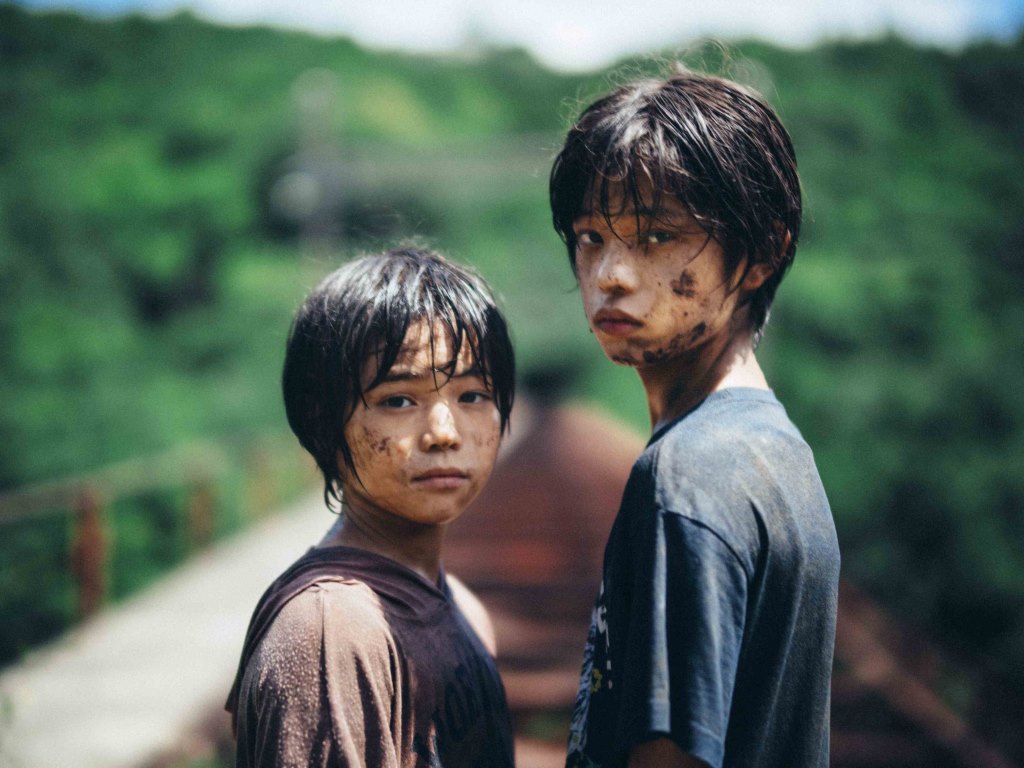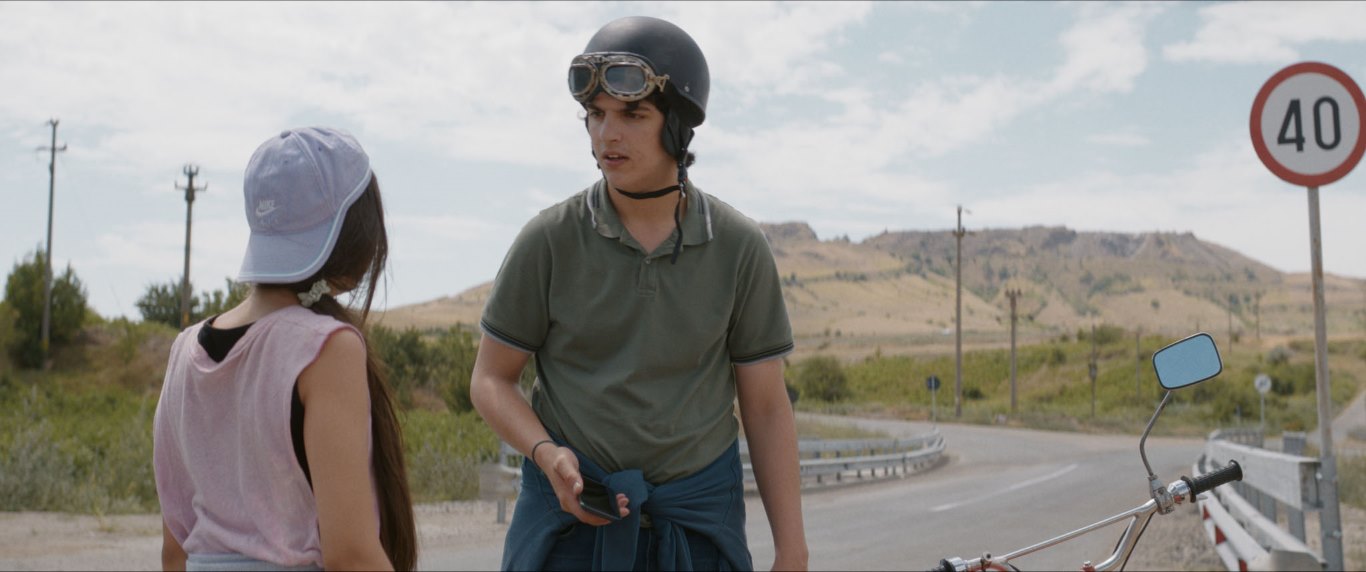FiF Recommendations: Must-See Films at Les Films de Cannes
Kicking off this weekend, the much-anticipated Les Films de Cannes returns for its 14th edition between October 20 and 29 in Bucharest, with special programs also in Timișoara, Cluj, and Arad. We’ve picked a few must-see titles from their extensive catalog, which includes the big winners from Cannes, Berlin, and Venice. The downside is that many of these screenings are already sold out. Still, if you didn’t get tickets, no need to despair: some of the films will be released later in theaters, and there are many other excellent options in the festival program that are worth exploring.
On the Adamant (dir. Nicolas Philibert)

In his newest film, French director Nicholas Philibert continues his lifelong artistic endeavor of bringing to the forefront those whom society considers disadvantaged. In this case, individuals with mental health issues who receive assistance through art therapy exercises at a floating day-care center located on the Seine River in the heart of Paris. As usual, the filmmaker observes his characters without intrusion or sensationalism, but with utmost empathy and patience. This prompts some sort of fascination with the complexity of these people and constantly challenges our preconceptions regarding what is or isn’t normal. (Ionuţ Mareş)
“On the Adamant”, the winner of the Golden Bear at Berlinale 2023, is screening at Les Films de Cannes in Bucharest, Timișoara, and Cluj-Napoca.
***
Fallen Leaves (dir. Aki Kaurismäki)

In an era where aesthetic culture is dominated, and even outright defined, by nostalgia, Fallen Leaves is perhaps one of those absolute (almost strange) rarities that fit perfectly into the Zeitgeist (ultimately, it can be seen as a remake of Shadows in Paradise, the first film in Kaurismäki’s Proletariat Trilogy, or of Leo McCarey’s An Affair to Remember). But at the same time, the film offers an antidote – referencing both the past (like the Rocco and His Brothers poster in the background, or the Bresson joke outside the cinema) and the present (these small hints that allude to humankind’s affairs around the globe, such as the siege of Mariupol, heard on the radio in Ansa’s kitchen). Which begs the question: how do you create something that succeeds in this delicate balancing act between a wide world marked by cruelty and pain and an everyday life marked by alienation, exploitation, and profound boredom – and the idea that, in the end, life still has its own course, along which we occasionally glimpse brief flashes of beauty (to quote Mekas)? Like so, replies Kaurismäki: through a humanistic ode, in the most generous understanding of the term. (Flavia Dima)
“Fallen Leaves” won the Jury Prize at Cannes 2023 and will hit theaters in December, distributed by Bad Unicorn. At LFDC.14, tickets are still available only for the screening at the Victoria Cinema in Cluj-Napoca.
***
Monster (dir. Hirokazu Koreeda)

Monster is Koreeda’s most thrilling effort in a long time, even surpassing Shoplifters in sharpness and emotion – less gratuitous feel-good and more incisiveness. Again, a world of adults who have miserably failed in how they treat their children, but also a bleak society, very much like the one we live in, that denies each other understanding and empathy. ‘If only you could see things from the other’s perspective,’ it is the Rashomon urge that Monster invokes.
Kaibutsu, bakemono, monsutā – all words describing beasts and monsters, all terms used by parents to describe their children, a profound lack of humanity that Koreeda counteracts with a warm gaze at otherness. A political gaze, nonetheless, perhaps for the first time from Koreeda, and generally largely absent in the Japanese cinema aimed at a wide audience – not to be understood as mainstream cinema but as one accessible to everyone. Starring veteran Yuko Tanaka in top form and an even better Sakura Ando, it’s actually the two child actors in the lead roles who outshine everyone, with performances that are at times subtle, at times absolutely ravishing. Monster is also the last scoring project by Ryuichi Sakamoto before passing away – the film bears both his memory and his serenity. (Dora Leu)
***
Anatomy of a Fall (dir. Justine Triet)

Trial films, those that delve into the world of courtrooms, inherently possess something cinematic about them. It’s as if when we come into contact with a debate involving the pawns of the legal apparatus, we are already at the core of our art, which fundamentally relies on matters of perspective, interpretation, and rhetoric. In the courtroom, as in the movie theatre, the truth is a volatile notion, often depending on the island of visibility we find ourselves on. It takes a cinephile mindset to elevate such observations to the level of moral issues capable of shaking the entire juridical-cinematic apparatus, this machine that taught us how to see and how much to believe. In 1960, Otto Preminger created the masterpiece Anatomy of a Murder, where a lawyer (James Stewart) turns the pretext of the trial into a personal challenge against the gods of chance. Over 60 years later, Justine Triet and Arthur Harari show us how much has changed – all sorts of operative images floating in the heavy air of the courtroom, caught between the status of evidence and that of spectacle – and how much has remained the same: an almost classical art of pushing discourse in favor of a cause towards the ecstatic realm of self-oblivion. (Victor Morozov)
“Anatomy of a Fall” won this year’s Palme d’Or at Cannes. Tickets are still available for screenings in Timișoara, Arad, and Cluj-Napoca.
***
Do Not Expect Too Much of the End of the World (dir. Radu Jude)

Radu Jude achieves a clear depiction of modern slavery in a hybrid film that is as natural as it is counterfeit. Despite all the lewd jokes, gags, and crass banter, there’s not much to laugh about. In my opinion, it’s the most acute film of the year: it has the potential to throw you into a national-existential crisis, but it depends on how much you let the social-political layer trouble you. Although I wasn’t familiar with Ilinca Manolache’s work, I liked how Jude captures her here, through this inspired reference, both in name and fate, to the protagonist in Angela Moves On (1981, dir. Lucian Bratu), playing a key role in the creation of this mixed media project, which combines archive footage with snapshots, 16 mm film with TikTok clips, and experiments with their characteristic features. At the same time, it’s also a cross-section through communism and late capitalism, where the latter triumphs in the schizo tendencies towards depersonalization through alienating overstimulation (at least in Angela’s case). Fatigue turns into burnout, burnout heralds the end; the apocalypse is here and must be lived. (Ramona Aristide)
“Do Not Expect Too Much of the End of the World” will be shown at the Eforie Cinematheque in Bucharest on Friday, October 27, the same day the film opens in cinemas across the country.
***
Romanian shorts

In the festival program, there are three screenings that truly deserve the spotlight, i.e. three sets of Romanian short films signed by emerging directors (especially female directors), which will be held on Tuesday, Wednesday, and Thursday (October 24, 25, and 26), at 6:00 PM, at the Union Cinema in Bucharest. Curated by Andrei Tănăsescu, the films range from experimental to family documentaries, and the screenings will be followed by Q&A sessions with the filmmakers. While many of the Cannes-winning titles will later open in cinemas, these short film evenings are a rare opportunity to see them on the big screen, so don’t miss out! Better yet, we invite you to discover some of these directors’ stories and work in our portrait series in Films in Frame. (Anca Vancu)
***
BONUS: Two film reviews and a behind-the-scenes report
We take this opportunity to bring out from the FiF archive the reviews of two of the titles showcased in the festival program, written by film critic and curator Flavia Dima, on the spot, right from Cannes, along with a report from the set of one of the films presented in premiere in the Autumn Previews section.
The Zone of Interest (dir. Jonathan Glazer)

Jonathan Glazer returns for the first time in a decade with a very precise and unsettling feature about the family life of Rudolf Höss, the commander of the extermination camp at Auschwitz. (…) Loosely based on Martin Amis’ – who passed away just a day after the film’s world premiere in Cannes – eponymous novel, The Zone of Interest is set in this sumptuous family home and its surroundings (notably, Glazer used the real-life location as a set, placing a dozen cameral all around the home to catch the movement of the actors from one room to the other). Read the film review here.
“The Zone of Interest” will come out in Romanian cinemas next spring.
Killers of the Flower Moon (dir. Martin Scorsese)

“A few words must be said about the acting of Leonardo DiCaprio – words often too easily spoken, but this role is truly one of the heights of his career: this dizzying gamut of duplicitous expressions, of fake smiles and vicious frowns animated by a Southern hillbilly accent, slowly dissolving into pure despair during the film’s final act, when the weight of his crimes is starting to catch up with him. „I’m lazy but I like money”, he tells Molly at the very beginning, with a smile worthy of the nickname she picks for him – coyote. Yet, the emptiness of his eyes betrayed the profound vacuity of this character that incarnates the very notion of the banality of evil.” Read the entire article here.
Before opening in cinemas, Martin Scorsese’s latest film, “Killers of the Flower Moon”, is shown in national premiere at Les Films de Cannes à Bucarest.
Horia (dir. Ana-Maria Comănescu)

Horia, director Ana-Maria Comănescu’s feature film debut, will have a special screening in Bucharest on Saturday, October 21, before its world premiere next month at the Tallinn Black Nights Film Festival, where it was selected in the International Youth Competition Programme. Last year, Ramona Aristide spent two days on the set and wrote about the film that “will show us a side of Romania we have never seen before.” Read the behind-the-scenes report here.
An article written by the magazine's team


